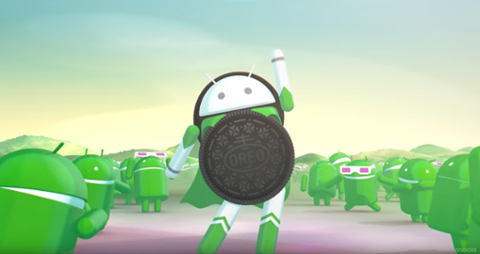
Will Google ever make Android more of a closed platform? In the years since its inception, Google Android has grown to dominate the mobile device market. A flood of midlevel Android devices crushed BlackBerry and Nokia in emerging markets (although to be perfectly fair, Nokia assisted in its own implosion by abandoning its homegrown operating systems in favor of Windows Phone). Meanwhile, high-quality Android devices such as the Samsung Galaxy, HTC One, and various versions of the Nexus have all demonstrated that other manufacturers can compete with Apple’s iPhone on their own terms. Google achieved this domination by opening Android up to all manufacturers. Some of its partners responded by loading their hardware with stock Android; others, most notably Amazon, used Android as a base to create highly specialized operating systems. Google doesn’t charge these companies to use Android; instead, it hopes to profit (if only in a small way) off sales of apps from its Google Play storefront, as well as users viewing mobile ads that appear as part of Google searches. Despite Android’s size, do advertisers and developers really see the OS as the most effective platform for their (monetary) needs? A new study by ad-buyer Nanigans suggests that Facebook ads on the iPhone generate 1,790 percent more return than equivalent advertising on Google Android (hat tip to
VentureBeat for the link). “Retailers are realizing significantly greater return from audiences on iOS than audiences on Android,” that study reported. The most controversial data in Nanigans’ report details Retail Facebook Mobile ROI, by OS:

Yes, the graph is suggesting that running advertisements on Android will actually cost a retailer more money than they’ll earn off the resulting sales. But Nanigans stopped short of trying to explain why this is so. Analysts and journalists have chattered for years about Android’s lack of revenue. Google itself didn’t seem to sweat too much over that fact—so long as Android grew to dominate the mobile-device arena, it would have time to figure out the best routes to earning tons of cash off the software. But Google also lives on ad revenue in the same way that Napoleon’s Army relied on the enemy countryside for supplies—no matter what its size, if the sustenance dries up even for a relatively short period, it’ll die. In light of that fundamental fact, this is Google’s totally hypothetical
Invasion of Russia: first, large firms such as Facebook, realizing that iPhone-related advertising translates into a better ROI, begin drifting away from investments in Android. At roughly the same time, more manufacturers follow what Amazon did with the Kindle Fire and start building highly modified versions of Android with their own unique app stores, none of which are compatible with Google Play (and thus take all that revenue off app sales). Both those situations would put Google in a rough spot, but not necessarily an existential one. It would take a last factor—a massive security breach, for example—to seriously shake up the platform and convince Google executives that the time had come for a change. What would Google do after that point? The exact same thing it’s done over the past couple years with its other platforms: slim down, lock down, and take steps to ensure that the Android audience becomes a more lucrative one. That’s not to say that Google would eliminate support for software such as
Adblock Plus for Android, but it could:
- Start charging licensing fees to manufacturers, particularly if the latter wants to modify the system,
- Clamp down and insist that Google Play serve as the only hub for Android apps (even if that means suing Amazon and other firms), and
- figure out how to weave still more ad units into the Android interface.
The protests might get loud; but at a certain point, if it wants to keep pleasing Wall Street, Google might not have a choice. And by following the above steps, it could still keep Android a little more open to third-party tinkering than its competitors.
Image: Palto/Shutterstock.com, Nanigans
 Will Google ever make Android more of a closed platform? In the years since its inception, Google Android has grown to dominate the mobile device market. A flood of midlevel Android devices crushed BlackBerry and Nokia in emerging markets (although to be perfectly fair, Nokia assisted in its own implosion by abandoning its homegrown operating systems in favor of Windows Phone). Meanwhile, high-quality Android devices such as the Samsung Galaxy, HTC One, and various versions of the Nexus have all demonstrated that other manufacturers can compete with Apple’s iPhone on their own terms. Google achieved this domination by opening Android up to all manufacturers. Some of its partners responded by loading their hardware with stock Android; others, most notably Amazon, used Android as a base to create highly specialized operating systems. Google doesn’t charge these companies to use Android; instead, it hopes to profit (if only in a small way) off sales of apps from its Google Play storefront, as well as users viewing mobile ads that appear as part of Google searches. Despite Android’s size, do advertisers and developers really see the OS as the most effective platform for their (monetary) needs? A new study by ad-buyer Nanigans suggests that Facebook ads on the iPhone generate 1,790 percent more return than equivalent advertising on Google Android (hat tip to VentureBeat for the link). “Retailers are realizing significantly greater return from audiences on iOS than audiences on Android,” that study reported. The most controversial data in Nanigans’ report details Retail Facebook Mobile ROI, by OS:
Will Google ever make Android more of a closed platform? In the years since its inception, Google Android has grown to dominate the mobile device market. A flood of midlevel Android devices crushed BlackBerry and Nokia in emerging markets (although to be perfectly fair, Nokia assisted in its own implosion by abandoning its homegrown operating systems in favor of Windows Phone). Meanwhile, high-quality Android devices such as the Samsung Galaxy, HTC One, and various versions of the Nexus have all demonstrated that other manufacturers can compete with Apple’s iPhone on their own terms. Google achieved this domination by opening Android up to all manufacturers. Some of its partners responded by loading their hardware with stock Android; others, most notably Amazon, used Android as a base to create highly specialized operating systems. Google doesn’t charge these companies to use Android; instead, it hopes to profit (if only in a small way) off sales of apps from its Google Play storefront, as well as users viewing mobile ads that appear as part of Google searches. Despite Android’s size, do advertisers and developers really see the OS as the most effective platform for their (monetary) needs? A new study by ad-buyer Nanigans suggests that Facebook ads on the iPhone generate 1,790 percent more return than equivalent advertising on Google Android (hat tip to VentureBeat for the link). “Retailers are realizing significantly greater return from audiences on iOS than audiences on Android,” that study reported. The most controversial data in Nanigans’ report details Retail Facebook Mobile ROI, by OS:  Yes, the graph is suggesting that running advertisements on Android will actually cost a retailer more money than they’ll earn off the resulting sales. But Nanigans stopped short of trying to explain why this is so. Analysts and journalists have chattered for years about Android’s lack of revenue. Google itself didn’t seem to sweat too much over that fact—so long as Android grew to dominate the mobile-device arena, it would have time to figure out the best routes to earning tons of cash off the software. But Google also lives on ad revenue in the same way that Napoleon’s Army relied on the enemy countryside for supplies—no matter what its size, if the sustenance dries up even for a relatively short period, it’ll die. In light of that fundamental fact, this is Google’s totally hypothetical Invasion of Russia: first, large firms such as Facebook, realizing that iPhone-related advertising translates into a better ROI, begin drifting away from investments in Android. At roughly the same time, more manufacturers follow what Amazon did with the Kindle Fire and start building highly modified versions of Android with their own unique app stores, none of which are compatible with Google Play (and thus take all that revenue off app sales). Both those situations would put Google in a rough spot, but not necessarily an existential one. It would take a last factor—a massive security breach, for example—to seriously shake up the platform and convince Google executives that the time had come for a change. What would Google do after that point? The exact same thing it’s done over the past couple years with its other platforms: slim down, lock down, and take steps to ensure that the Android audience becomes a more lucrative one. That’s not to say that Google would eliminate support for software such as Adblock Plus for Android, but it could:
Yes, the graph is suggesting that running advertisements on Android will actually cost a retailer more money than they’ll earn off the resulting sales. But Nanigans stopped short of trying to explain why this is so. Analysts and journalists have chattered for years about Android’s lack of revenue. Google itself didn’t seem to sweat too much over that fact—so long as Android grew to dominate the mobile-device arena, it would have time to figure out the best routes to earning tons of cash off the software. But Google also lives on ad revenue in the same way that Napoleon’s Army relied on the enemy countryside for supplies—no matter what its size, if the sustenance dries up even for a relatively short period, it’ll die. In light of that fundamental fact, this is Google’s totally hypothetical Invasion of Russia: first, large firms such as Facebook, realizing that iPhone-related advertising translates into a better ROI, begin drifting away from investments in Android. At roughly the same time, more manufacturers follow what Amazon did with the Kindle Fire and start building highly modified versions of Android with their own unique app stores, none of which are compatible with Google Play (and thus take all that revenue off app sales). Both those situations would put Google in a rough spot, but not necessarily an existential one. It would take a last factor—a massive security breach, for example—to seriously shake up the platform and convince Google executives that the time had come for a change. What would Google do after that point? The exact same thing it’s done over the past couple years with its other platforms: slim down, lock down, and take steps to ensure that the Android audience becomes a more lucrative one. That’s not to say that Google would eliminate support for software such as Adblock Plus for Android, but it could:



